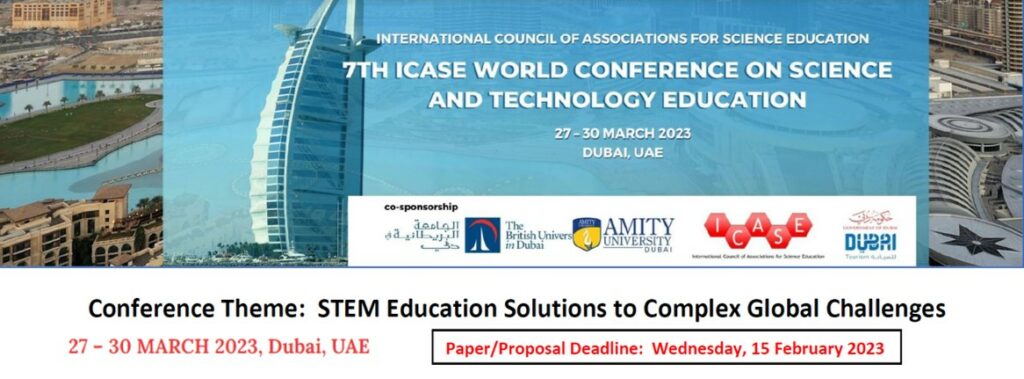ICASE World Conference 2023


Conference Strands:
STEM Education Policy – STEM Education Impact – STEM Teaching Practices – STEM Education Pedagogy and Projects
www.icase2023.com


The 7th INESPO (International Environment & Sustainability Project Olympiad) international olympiad takes place from 31st May – 5th June in Amsterdam. It is intended for students between 13 and 18 years with the goal to involve them bring communal consensus on social environmental values and to eventually eliminate the environmental problems through education.
Protection of the environment is essential to the quality of life of both present and future generations. The challenge is to combine this with a permanent and lasting economic growth. However, climate change only makes it more challenging. The environmental policy of the European Union is based on the conviction that stringent environmental norms can form a stimulus for innovation and can offer new opportunities for businesses.
Furthermore, the environmental policy has to be interwoven with economic, social and industrial policies. Europeans consider their environment quite important. Euro barometer polls show that a large majority (more than 70%) wants policy makers to balance environmental policy with economic and social policies.
As individuals, Europeans are ready to support environmental policy, but they would do even more if they have better information about environmental options that costs little to nothing. Furthermore, they need to be convinced that their co-citizens do the same so their precautions are not in vain.
The Cosmicus Foundation strongly believes in this and therefore wants to make the younger generation more aware of its contribution to the environment by introducing simple and practical scientific educational projects. The international Olympiad will be the stage where the future generation practices its knowledge and love for science by contributing to a solution for different environmental issues. After all, the earth gets affected more and more due to human interference and if we do not take action soon, the consequences will be devastating.
A student who designed a unique assisted shaving device wins SciFest 2017. EnableArm is an assisted shaving device for people with limited hand dexterity. Aaron…
Thousands of students all over the world are expected to take part in the Royal Society of Chemistry (RSC) 2015 global experiment. This year the theme is “Water: a global experiment with hydrogels.”
Students taking part are invited to explore the effects that hydrogels (a man-made product) have on the water cycle before sharing their results with other classes across the globe. Not only are all the activities engaging, they also support learning and curriculum. So why not get involved?
There are three distinct experiments, all of which have been designed so they can be carried out without specialist equipment and on a small budget:
• Experiment 1: How much water can a hydrogel hold?
• Experiment 2: How quickly can hydrogels absorb water? Does this ever change?
• Experiment 3: An open investigation into how water can be retrieved from a hydrogel
These experiments support students in exploring the question: are we wasting water by using hydrogels?
All the data collected from the above experiments should be uploaded onto the global experiment website. Once uploaded, all the collated data will be examined and analysed. This creates an opportunity to discuss the importance of repeating experiments. Students can also receive a certificate of achievement for taking part.
Be part of something huge: check out their website for full details on how to join this global experiment.
Irish student achieves global success at international science fair! SciFest winner Adam Kelly wins Dudley R. Herschbach SIYSS Award and will have an asteroid named…
The ISTA is delighted to announce the winners and runners up in this year’s Science Photo Competition. The quality of the entries was exceptional, with…
